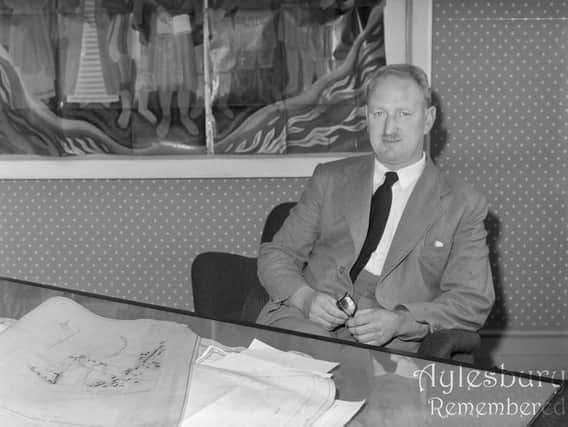Fred Pooley, architect of Buckinghamshire County Council building is inducted to Oxford Dictionary of National Biography


The twelve-storey concrete tower housing the Buckingham county council’s offices off Aylesbury’s market square (completed in 1966) soon became known as ‘Pooley’s Folly’ – after its designer, Fred Pooley (1916-1998).
The author of Pooley’s biography, Professor Guy Ortolano, traces Pooley’s career from the engineer’s office at the borough of West Ham and war service in the Royal Engineers.
Advertisement
Hide AdAdvertisement
Hide AdAfter the war he became a planning officer in Coventry, which enjoyed an international reputation in urban planning, ‘with its sleek modern buildings, pedestrian centre, and sophisticated
traffic management’
Pooley came to Buckinghamshire as chief architect in 1954, where he oversaw a building programme which favoured brickwork over concrete, used pitched roofs, and where possible,
local builders. He saw himself as a conservationist.
His most notorious construction, the county hall in Aylesbury, is therefore all the more surprising, for its imposition of a ‘brutalist’ structure into the centre of a historic market town.
Another of Pooley’s legacies to Buckinghamshire was his 1964 plan for ‘North Bucks New City’, which became Milton Keynes – though his plans put monorail public transport, rather
Advertisement
Hide AdAdvertisement
Hide Adthan cars, at its centre. His ambitious ideas, though, were rejected as too expensive by central government.
So it is for ‘Pooley’s folly’ in Aylesbury rather than the North Bucks ‘Pooleyville’ that this affable planner is now remembered.
Introducing the new lives, Dr Otto Saumarez Smith comments that Britain’s post-war planners have become bogeymen, and have regularly been castigated for their legacies.
This biographical exercise, however, offers an opportunity to reassess these controversial figures: ‘The subject is hugely significant’, Dr Saumarez Smith writes, ‘because of the profound effect it had, and continues to have, on everyday lives and places across the country’.
Advertisement
Hide AdAdvertisement
Hide AdThe Oxford DNB is the national record of men and women who have shaped British history, worldwide, from prehistory to the year 2015. From February 2019 the Dictionary includes
biographies of 63,261 individuals, written by over 10,000 contributors. It is freely accessible to members of most public libraries.